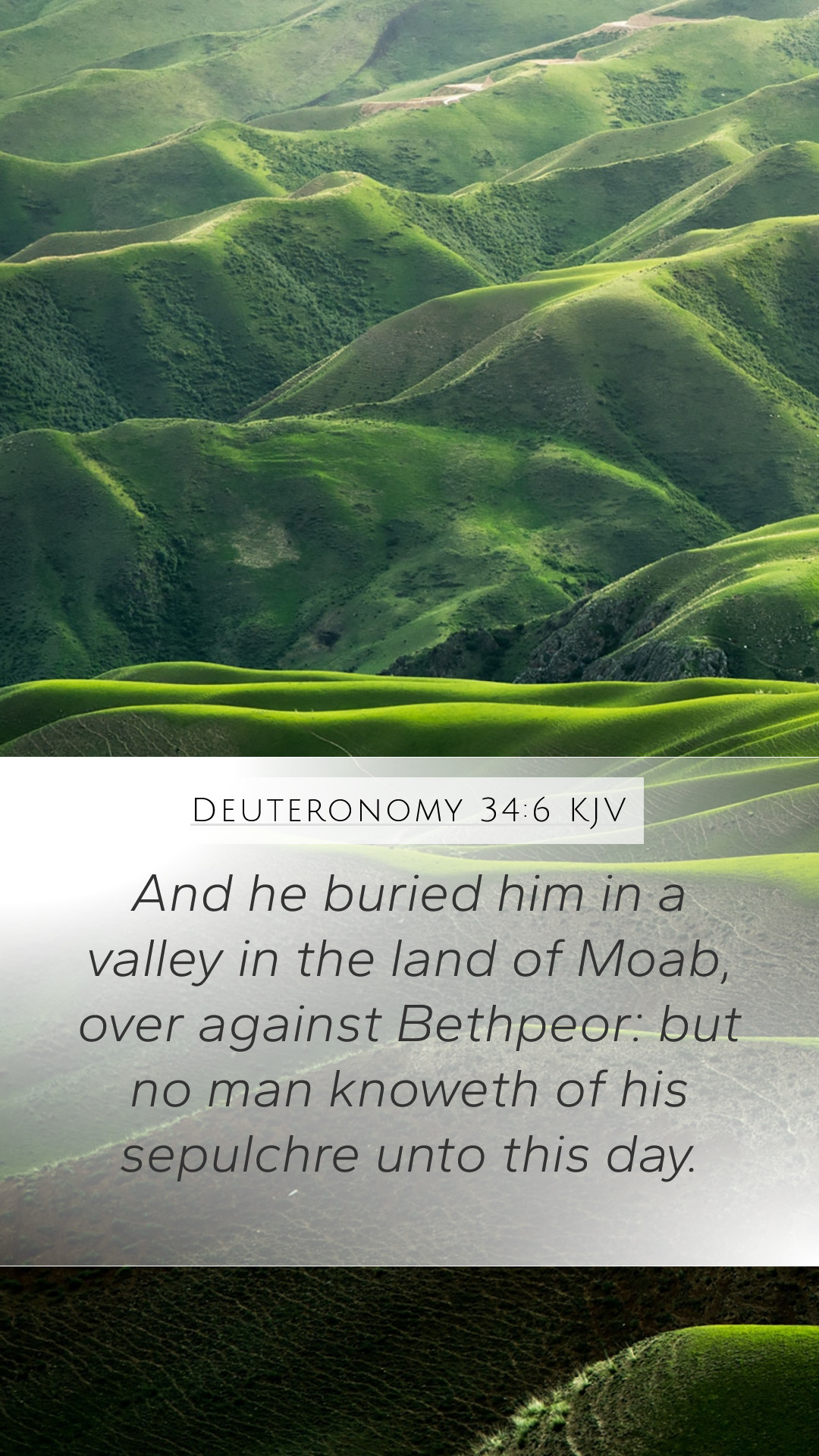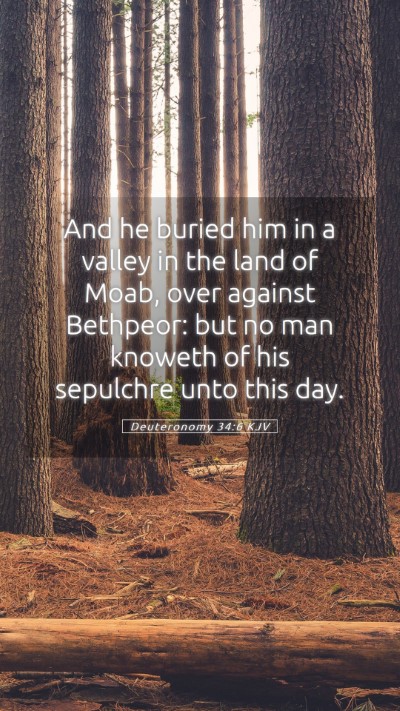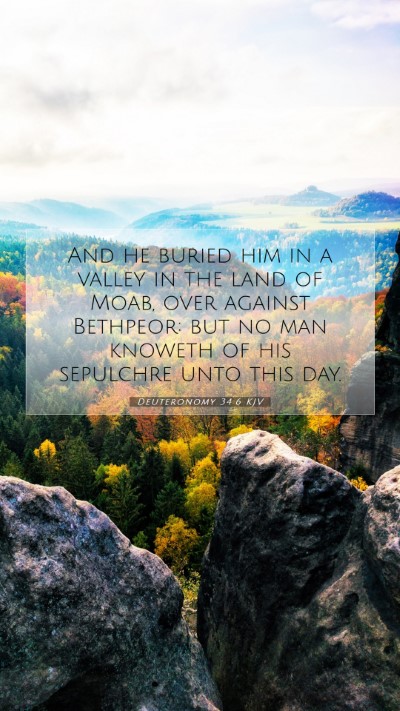Understanding Deuteronomy 34:6
Deuteronomy 34:6 states, "And He buried him in a valley in the land of Moab, opposite Beth Peor; but no one knows his grave to this day." This verse marks the culmination of Moses’ life and the mystery surrounding his burial. In this commentary, we will explore the profound spiritual and theological implications of this passage, along with insights from noted public domain commentaries.
Commentary Insights
The burial of Moses is steeped in mystery and is often discussed in terms of God's sovereignty and the nature of Moses' leadership. Authors like Matthew Henry, Albert Barnes, and Adam Clarke provide a rich tapestry of interpretations and meanings behind this significant moment in scripture.
Matthew Henry's Perspective
Matthew Henry suggests that the act of God burying Moses signifies divine approval. Henry emphasizes the unique relationship between God and Moses, indicating that Moses was so esteemed that God Himself took responsibility for his burial. This emphasizes both the special role Moses played as a leader of Israel and the intimacy of his relationship with God. Henry notes the failure to discover Moses' grave as a mark of respect, preventing the potential for idolatry or reverence toward Moses rather than God.
Albert Barnes’ Interpretation
Albert Barnes elaborates on the significance of the location and burial. He highlights that God chose a hidden place for Moses’ grave as a testament to God’s authority and plan beyond human understanding. According to Barnes, the grave being unknown serves as a metaphor for how God often withholds knowledge to provoke faith. This mystery points toward the overarching theme of trusting in God's providence even when circumstances are unclear.
Adam Clarke's Analysis
Adam Clarke provides a detailed examination of the geographical context of the burial. He explains that the location in Moab and its alignment with the history of Israel enhances the narrative of transition for the Israelites. Clarke notes that the lack of a known grave serves both to honor Moses and as a divine safeguard against his veneration. In Clarke's view, the protective anonymity of Moses’ resting place highlights the importance of following God's commands without clinging to human figures.
Theological Significance
This verse not only documents the end of Moses' journey but opens deep theological discussions about life, death, and legacy in the context of God's plan. The burial signifies closure and also points to new beginnings for Israel as they prepare to enter the Promised Land under new leadership. This moment encapsulates the themes of obedience and faithfulness, which are central to the entire narrative of Deuteronomy.
Interactions with Widely Recognized Themes
- Divine Sovereignty: God’s control over life and death is evident in His unique action regarding Moses’ burial.
- Human Legacy: Moses' contributions to Israel continue beyond his death, shaping the identity and faith of the nation.
- Faith Without Sight: The unknown grave of Moses challenges us to trust in God's plan without needing to know all the details.
Cross References
This verse is interconnected with various other sections in Scripture that shed light on its themes:
- Exodus 34:5-7 - This passage discusses Moses receiving the law from God, showcasing his role as Israel's mediator.
- Joshua 1:1-2 - This scripture begins the transition of leadership from Moses to Joshua, underscoring God's ongoing plan for Israel.
- Hebrews 11:23-29 - This New Testament reference highlights the faith of Moses and his importance in salvation history.
Conclusion
In Deuteronomy 34:6, we find a profound statement on God's care for Moses, contrasting the mortality of man with the eternal nature of God's promises. As seen through the lenses of various commentaries, we glean practical insights for our lives today. The significance of Moses' burial invites reflection on our own legacies, our relationship with God, and how we can find assurance in trusting God’s path, even in uncertainty.
Further Study
For those seeking deeper understanding, consider engaging in Bible study groups or utilizing online Bible study resources. Explore tools that facilitate in-depth Bible verse analysis and engage with materials that foster discussion on how to interpret Bible verses effectively.


